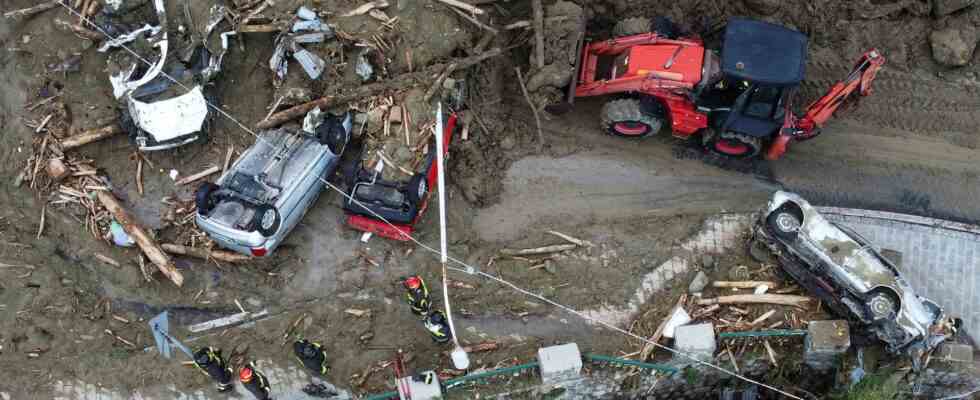Status: 11/27/2022 10:30 a.m
Eleven people are still missing after the storm on Ischia. In the course of the day, the Italian government wants to declare a state of emergency for the region – only then can aid be paid out.
After the devastating storm on the Italian island of Ischia, the authorities are still looking for missing people. The rescue workers were on duty all night, as reported by several media. According to the authorities, eleven people are still missing in the evening. It has been confirmed that a woman died in the storm and at least 13 people were injured.
The responsible prefecture in the southern Italian city of Naples is scheduled to meet for another crisis meeting today. The government in Rome announced a Council of Ministers meeting for the morning to declare a state of emergency in the region. This is necessary, among other things, so that funds can be released quickly.
Several cars washed into the sea
The deployment of rescue workers on the island in the Gulf of Naples is made more difficult by the fact that the weather continues to be bad.
Storm and heavy rain hit the island on Saturday night and caused serious damage, especially in places on the north coast. Landslides came off the slopes, floods of water, mud and rock drove through the streets, cars and buses were damaged and some washed into the sea.
Several cars were washed into the sea by the force of the water and mud.
Image: REUTERS
High water temperatures favor storms
The area was considered a risk area for landslides. The first experts voiced that too little had been done for protection there in recent years.
There have been several violent storms in the Mediterranean region in recent weeks. According to meteorologists, as much rain had fallen on Crete in mid-October within an hour as it normally does for the entire month. There had also recently been storms on the Spanish Mediterranean coast, the severity of which was classified as unusual by meteorologists.
Experts also see a connection with climate change. The Mediterranean has heated up unusually this summer and is still comparatively warm. Due to the high temperatures, more water evaporates. And the more water vapor there is in the air, the more energy is available for showers and thunderstorms – in other words, the more violent they can be, according to the weather competence center of the ARD.

